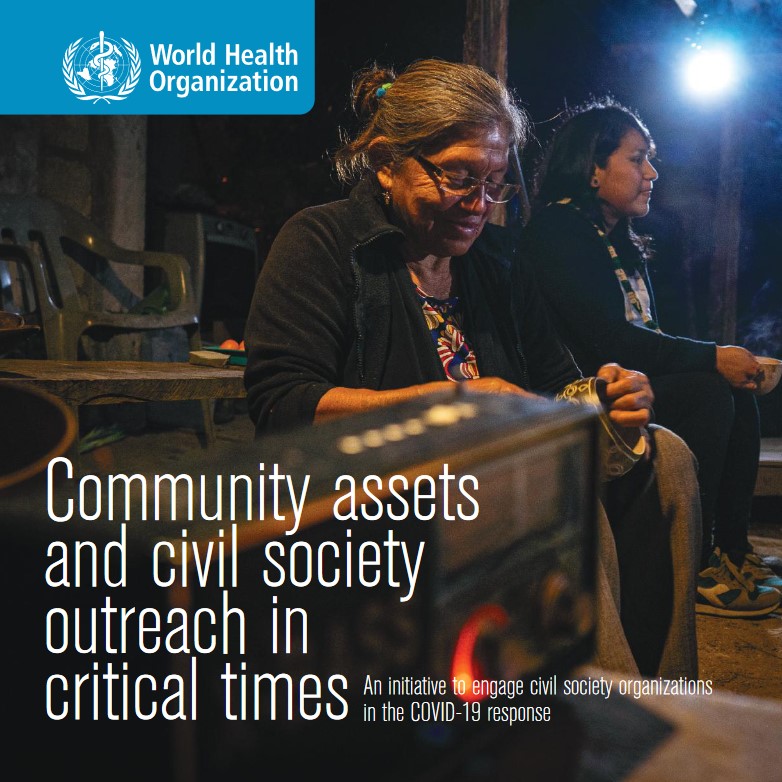Global Allergy & Airways Patient Platform
Bronchiectasis Educational Flyers
Guide
05 Feb 2026
24 Oct 2022

In 2020–2021, with the support of the COVID-19 Solidarity Response Fund, the World Health Organization (WHO) provided direct financial and technical support to 54 grassroots civil society organizations (CSO) in 40 countries, serving over 80 million people in situations of vulnerability, including migrants, refugees, internally displaced persons, persons with disabilities, older persons, youth groups, women and children in distress, hard-to-reach indigenous communities, hidden social and ethnic minorities, informal workers and front-line care providers.
Connecting communities to services and fostering participatory governance, the CSO Engagement Initiative sought to mitigate the impact of the COVID-19 pandemic on the most vulnerable.
This collection of best practice experiences is a testimony to the life-changing impact of the support provided to the grassroots organizations by WHO and COVID-19 Solidarity Response Fund.